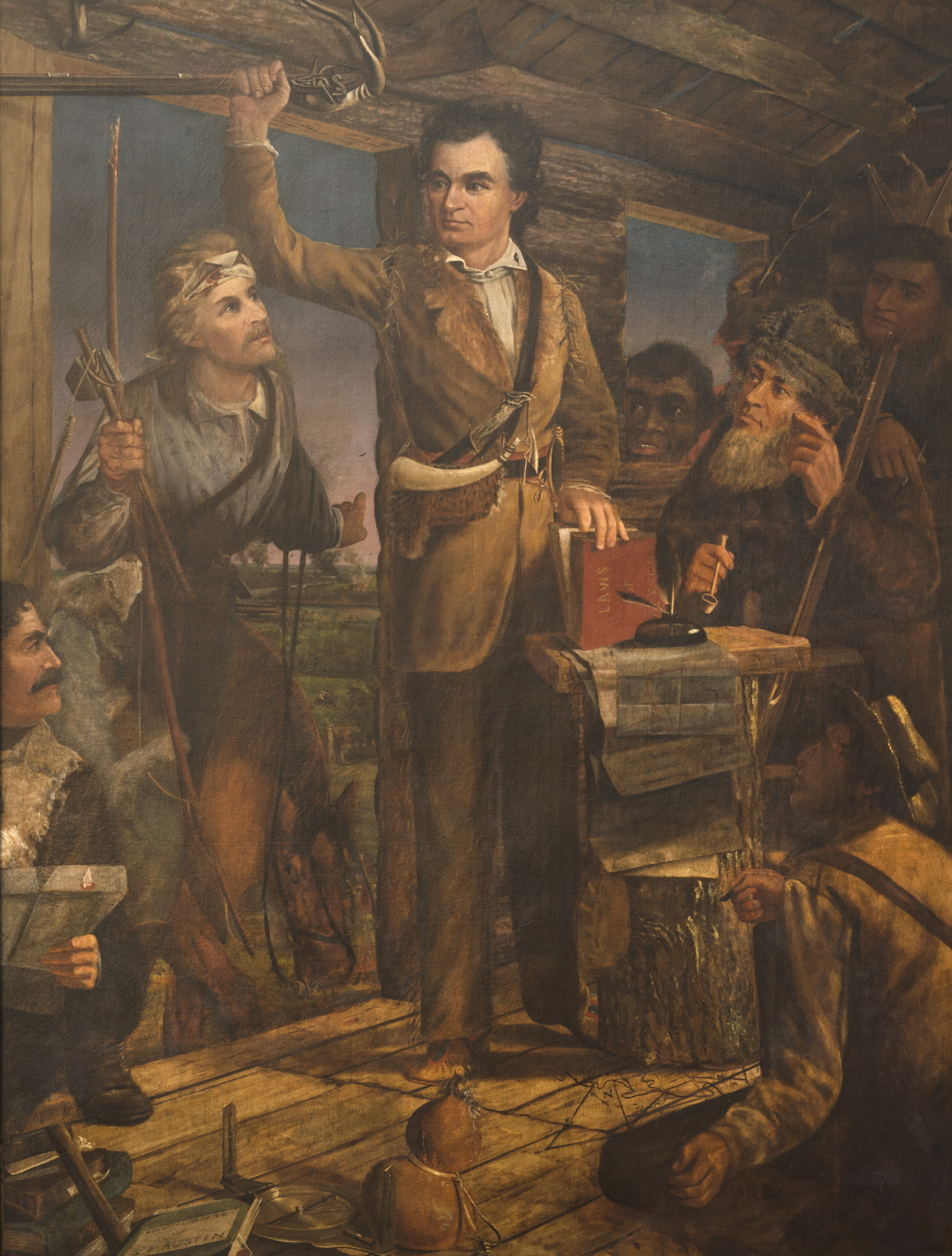Karankawa were a Native American people of what is now Texas. The Karankawa consisted of several distinct groups that shared a common language and culture. They lived along the Gulf Coast from Corpus Christi to Galveston Bay. Scholars know little about the Karankawa and from few historical sources. Historians are not certain where the name Karankawa originated or what it meant. Many scholars think the name means dog lovers or dog raisers. The name may refer to the fact that the tribe kept domesticated dogs.

In the summer, the Karankawa lived in small bands that traveled and camped together. They moved between the mainland and barrier islands in dugout canoes, seeking fish, shellfish, turtles, and other foods. They gathered in larger groups in the winter. They traded with inland tribes for items they could not obtain on the coast. The Karankawa made pottery and fine woven baskets for storage. They built shelters using portable frames of wood covered with animal hides or thatch. Adults decorated their bodies with tattoos and piercings.
European explorers first met the Karankawa in 1528. Survivors of a Spanish expedition led by Pánfilo de Narváez landed on an island in Karankawa territory. Álvar Núñez Cabeza de Vaca , one of the shipwrecked survivors, remained among the Karankawa for several years and wrote about their lifestyle. The Karankawa had no further contact with Europeans for about 150 years. In the late 1600’s, French colonists established outposts in their territory, leading to conflict with the Karankawa. Spanish colonists also arrived in the area in the 1700’s. The increasing contact with European colonists exposed the Karankawa to many diseases, drastically reducing their numbers.
Over the years, pirates, settlers, and other native groups attacked the Karankawa. In the 1820’s and 1830’s, conflicts with Texan settlers significantly reduced the Karankawa population. In the 1840’s, much of the remaining population fled to Mexico, but further conflicts forced them to return. The last known band of Karankawa was attacked and killed in a raid by American settlers in 1858.
